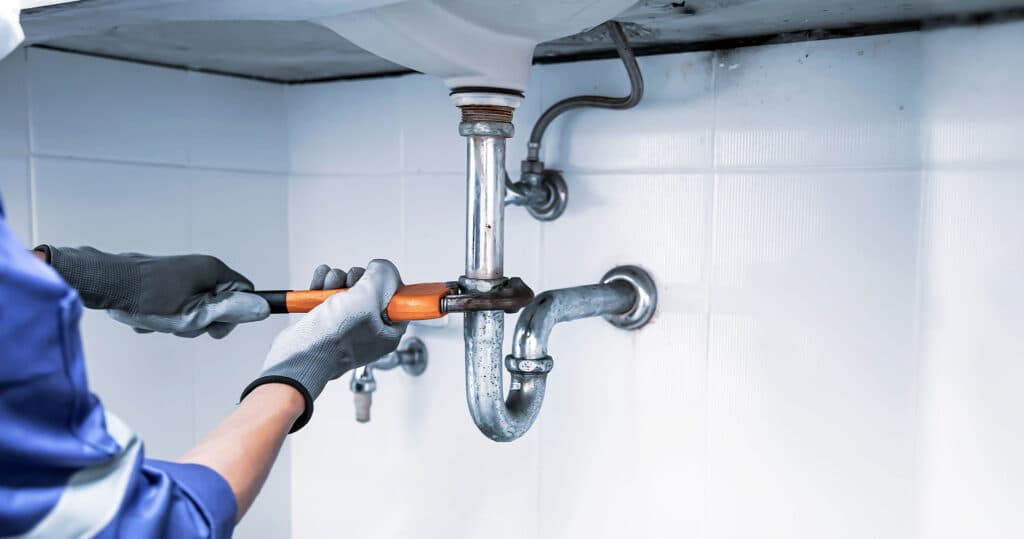
How to Start a Plumbing Business
You have a dream. You want to learn how to start a plumbing business that wins your local market. You want to be the go-to for your community, the plumber they can rely on.
Of course, there will be challenges along the way. Between finances and marketing, there's a whole lot to balance in the early days. But with passion, dedication, and just a bit of guidance, you can succeed.
In this article, we'll give you the tools you need to make your dream a reality.
We'll give you the latest research on the demand for plumbing services. Then, we'll list some initial steps you'll need to take.
We'll discuss marketing and branding as well as financial management. To wrap up, we'll give you some tips you can use today.
The world is ready for you! It's time to start your very own plumbing business.
RELATED ARTICLE: Top 10 Issues Plumbers Face
What are the Demands for Plumbing Services?
That's the thing about plumbing services—they are always in demand. Why? Because they are essential.
Think about it like this:
If the average homeowner has a pipe burst, they probably won't have a clue how to fix it. They can't just leave it as is either. They have no option but to call a plumber.
The same goes for commercial clients. Hospitals, hotels, schools, restaurants—they all rely on working plumbing.
For this reason, revenue from plumbing reached $126.4 billion in 2023.
Despite a small dip during the pandemic, the industry is recovering. Plus, more people are building and renovating homes and businesses. This means more work for plumbers like you.
High demand is one great reason to start a plumbing business. Here are some more:
- Plumbing can be very profitable. The average plumber in the US makes about $60,000 annually. But high-earning plumbers can bring home $97,500.
- Some places need more plumbers than others. For example, California has a high demand due to its large population and frequent natural disasters. If you live in the right location, you're already off to a great start.
- Starting a plumbing business doesn't require a lot of money up front. You'll need some tools and a truck, but that's about it.
- The plumbing industry is set to grow in the next five years. With more people building and fixing properties, the demand for plumbers will increase. This means more opportunities for your business to expand.
- If you already have years of experience, it can be easier to start your own business. Your skills and knowledge can help you attract customers.
- Running your own business means you can choose your hours. This flexibility can be a big plus. You can balance work with other parts of your life, like family time or travel.

The Initial Steps of Starting a Plumbing Business
Starting a plumbing business is like most things in life. Having a plan maximizes your chance of success.
What kind of plan? It should be a document that details your goals. It should list the core activities and tasks you'll need to do before you launch.
If you put in the time and effort to map out your plan, you'll reap the rewards later down the line.
Here are just some of the benefits:
- You'll understand your local market, including your competitors and your target audience. This helps you set your prices.
- A plan helps you set short-term and long-term goals. You can track your progress. This keeps you focused and motivated.
- With a plan, you can see potential problems before they happen. You can prepare for them. This saves time and money.
Here are five initial steps to start your plumbing business:
- Create a business plan. Write down your business idea. Include your services, target customers, and pricing. Outline your goals. This is your roadmap.
- Make sure you are a licensed plumber. Take courses if you need to. Stay updated with the latest plumbing techniques. Be sure to check the licensing requirements in your state of operation.
- Choose a business name and register it. Decide if you want to be set up as a Sole Proprietor, LLC, or Corporation.
- Get insurance for your business, including liability insurance and workers' compensation.
- Buy the tools you need to get started. This includes wrenches, pipe cutters, and a reliable vehicle.
FROM ONE OF OUR PARTNERS: How to Create a Business Plan for a Plumbing Company
Plumbing Marketing and Branding Strategies
You've laid the groundwork with a plan. Now, you need customers. This is where marketing and branding strategies come into play.
Marketing and branding help promote your services. They capture what makes your business different from your competitors. This is called your unique selling proposition (USP).
Your USP might be that you use eco-friendly products or that your customer service is second to none.
Whatever it is, your USP should resonate with your local market.
Here are some of the benefits of planning and investing in both marketing and branding:
- Marketing helps you reach more people who are likely to use your services. It captures their attention and converts them into loyal customers.
- A strong brand builds trust. Customers are more likely to choose a business they trust. Good branding shows you are professional and reliable.
- Happy customers will tell others about your services. It's essentially free advertising. Good marketing and branding make this more likely.
To start, prioritize these marketing and branding strategies:
- Create a professional website. It should include information about your services, contact details, and customer reviews. Make sure it's easy to navigate.
- Use social media to reach more people. Create accounts on platforms like Facebook, Instagram, and LinkedIn (if you are targeting commercial clients).
- Claim your Google Business Profile. This puts your business on Google Maps and allows your customers to leave Google reviews.
- Partner with local suppliers and contractors. They can refer customers to you. You can also refer customers to them. It's a win-win scenario.
- Advertise in local newspapers, magazines, and online community boards. Sponsor local events. You can even mail flyers to prospects in your local area.
FROM ONE OF OUR PARTNERS: How to Determine the Ideal Customers for Your Plumbing Business

Financial Management for a Plumbing Business
Organized financial management is essential to your new business's success.
According to Investopedia, "running out of money is a small business's biggest risk."
Don't let cash be your downfall. Instead, enjoy these benefits:
- A financial plan can help you set prices that cover costs and earn you a profit.
- With a plan in place, you can make smart financial decisions. You can calculate your income and expenses to avoid running out of money.
- A financial plan helps you save for future investments. Examples include buying new tools or expanding your business.
Not sure where to start?
Here are five financial management strategies to use:
- Calculate your rates to guarantee profitability. To do this, work out all your costs. This includes tools, travel, and labor. Add a profit margin. Set your service rates to cover these costs and make a profit.
- Invest in quality accounting software. This helps you keep track of your spending and income. It also makes tax time easier.
- Keep an eye on your cash flow. Know how much money is coming in and going out. Create a budget and stick to it. This helps you avoid surprises.
- Save money to buy new tools and technology. This can boost your productivity and attract more customers.
- Set aside money for taxes throughout the year. Know what taxes you need to pay and when. That way, you avoid penalties and fines.
FROM ONE OF OUR PARTNERS: A 5-Step Guide to Annual Planning for Your Business
Top Tips for Starting a Plumbing Business
You know how to start a plumbing business. Here are four things you can do right now:
- Research the local market. Look at other plumbing businesses in your area. See what services they offer and what they charge. This helps you understand the competition and find your USP.
- Draft a business plan. Write down your business goals, target customers, services, and pricing.
- Prioritize actions. Get qualified if you're not already. Buy the necessary tools and equipment. Make sure you are ready to start offering services.
- Create a budget. Plan your finances. List your expected income and expenses. This helps you manage your money and avoid financial problems.
Never miss a post.
Get notified of new content